Humans
Sign up for our newsletter
We summarize the week's scientific breakthroughs every Thursday.
-
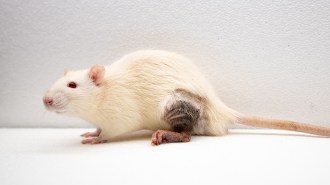 Health & Medicine
Health & MedicineA trick from cancer cells helps rats accept transplanted limbs
Rats that received microparticles that release a chemical signal to recruit immune cells tolerated hind limb transplants for more than 200 days.
-
 Health & Medicine
Health & MedicineSocial distancing, not travel bans, is crucial to limiting coronavirus’ spread
Everything from waving hello instead of shaking hands to cancelling large gatherings of people will help slow the spread of COVID-19.
By Jonathan Lambert and Tina Hesman Saey -
 Health & Medicine
Health & MedicineCruise ship outbreak helps pin down how deadly the new coronavirus is
Infections and deaths on the Diamond Princess suggest that, in the real world, 0.5 percent of COVID-19 infections in China end in death.
-
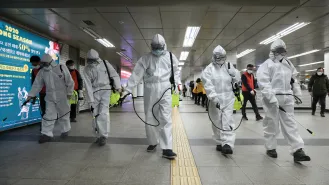 Health & Medicine
Health & MedicineWhat WHO calling the coronavirus outbreak a pandemic means
The world’s top global health organization is asking countries to double down on efforts to both contain the virus and mitigate its impact.
-
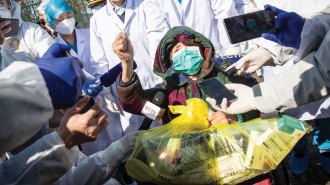 Health & Medicine
Health & MedicineRepurposed drugs may help scientists fight the new coronavirus
Work on similar viruses is giving researchers clues on how to begin developing drugs against the new disease.
-
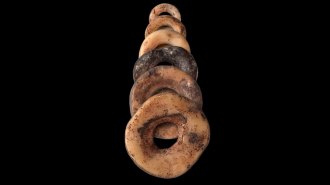 Anthropology
AnthropologyAn ancient social safety net in Africa was built on beads
A Stone Age network of communities across southern Africans was established using ostrich shell beads by around 33,000 years ago.
By Bruce Bower -
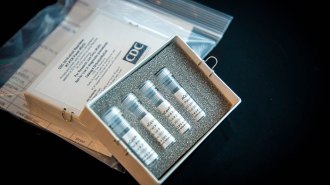 Health & Medicine
Health & MedicineWhat you need to know about coronavirus testing in the U.S.
Testing for the new coronavirus is still limited but could ramp up soon, thanks in part to tests developed by state laboratories and companies.
-
 Health & Medicine
Health & MedicineTravel bans have barely slowed the coronavirus’s spread
Travel restrictions in Wuhan and greater China have only modestly impacted the spread of the virus to other countries, researchers say.
-
 Health & Medicine
Health & MedicineA dog in Hong Kong has a low-level infection of the new coronavirus
There’s currently no evidence that pets can actually get sick from the virus or pass it to people or other animals.
-
 Health & Medicine
Health & MedicineImmune cells in the gut may play a big role in peanut allergies
A study finds loads of allergy-inducing cells in the stomachs and intestines of adults allergic to peanuts, but few in people without the condition.
-
 Health & Medicine
Health & MedicineA more convenient, monthly treatment for HIV cleared a key hurdle
Two phase III clinical trials suggest that a once-a-month injection of antiretroviral drugs treats HIV just as well as daily pill regimes.
-
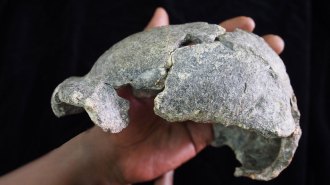 Anthropology
AnthropologyNew fossils and artifacts show Homo erectus crafted a diverse toolkit
Ancient hominid made stone tools demanding a range of skills and planning, a study finds.
By Bruce Bower